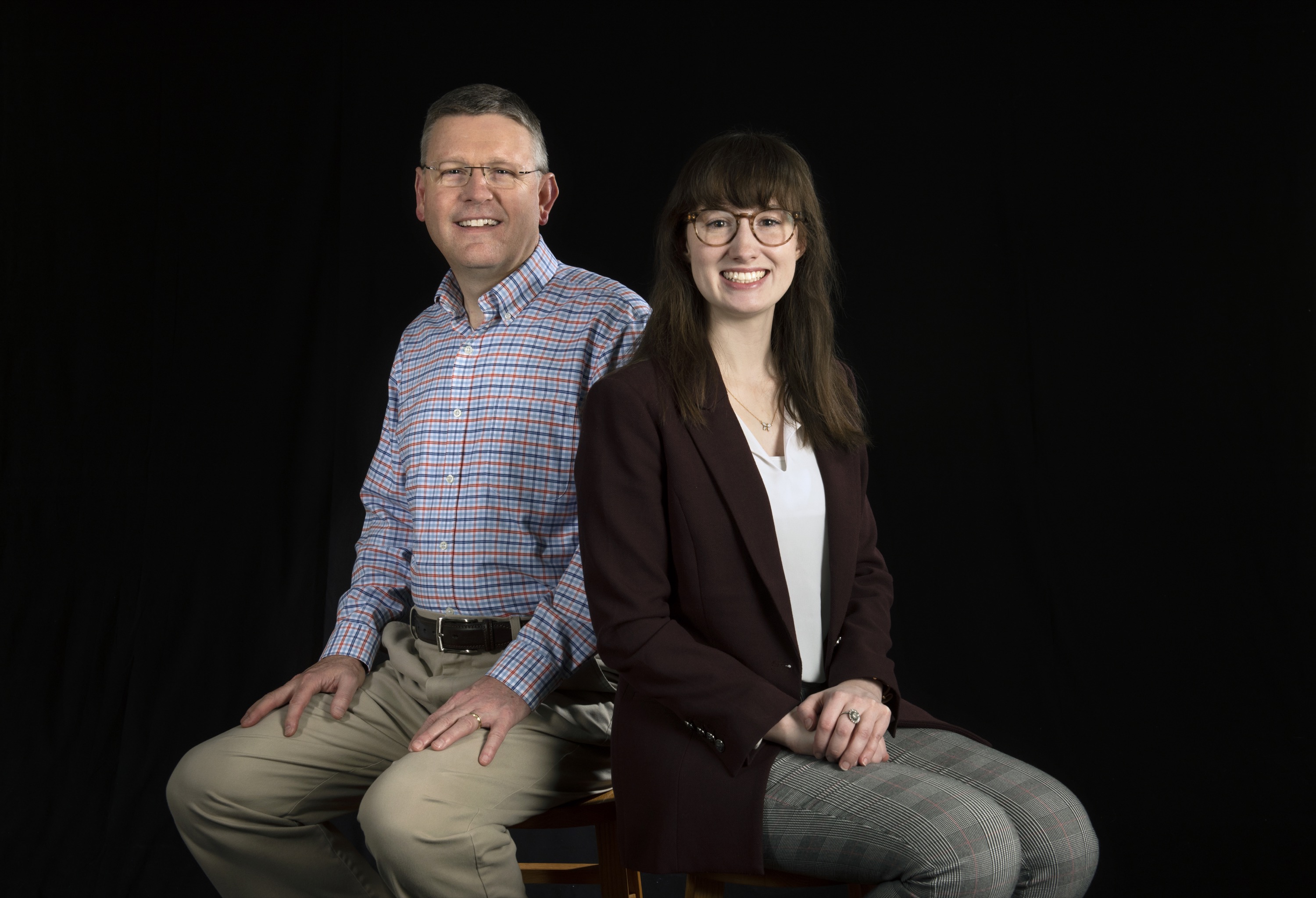Lumen Scholar Caroline Enright '20, with Associate Professor of Education Stephen Byrd as her mentor, is researching laws and methods for providing inclusivity for students with disabilities in the Uganda education system.
Inclusion. It’s always been a passion for Caroline Enright ’20, a passion that has translated into a path for her Lumen Prize research at Elon.
Through her research, Enright is working to increase educational access for people with disabilities in Uganda, a country she has a special connection with. When she was 16 years old, Enright had the opportunity to go to Uganda with a community group led by a Ugandan native and noticed that students with disabilities weren’t present in classrooms. She wondered where they were and if they were going to different schools.
In 2006, the United Nations had adopted the Convention on the Rights of Persons with Disabilities, an international treaty meant to protect the rights of people with disabilities. The UN ruled that all countries should be striving toward inclusion by promoting and protecting the human rights of people with disabilities.
In Uganda, however, the law granting students with disabilities access to education hasn’t always been implemented as prescribed. At some schools outside of the capital city of Kampala, for example, the resources needed to support inclusion for these students aren’t always allocated accordingly. Sometimes parents of those with disabilities don’t even know the law protecting educational access for their children exists.
The opportunity to address these types of disparities in the country made an Elon education appealing, Enright said. “Elon had all avenues where I could ask more questions and potentially go back and continue to ask questions,” Enright said.
At Elon, the Lumen Prize offered Enright an opportunity to see answers to the questions she had about how to ensure students with disabilities in Uganda had access to education that the law required. Lumen Scholars receive $20,000 to support and celebrate academic research and achievements. For Enright, this prize has meant multiple research trips to Uganda to help provide training for teachers who can help assimilate students who have disabilities.
“These teachers want so badly to help their students and there are so many barriers in their way for them to do that,” Enright said. “This training was just another way for them to connect with their students and realize how much they can do.”
This month, Enright will take her sixth trip to Uganda – her fourth while at Elon – to collect the final survey results and interviews about the impact of the training.
Enright has already seen progress in previous trainings, noticing people’s faces change as “light bulbs go off.” Enright recalls one workshop activity led by her research mentor Associate Professor of Education Stephen Byrd in collaboration with BackUp Uganda. During the workshop, teachers were asked how a variety of disability symptoms would present in classrooms and what they could do to help their students feel included. Enright still remembers the teachers’ responses.
“Their answers were glorious,” Enright said. “They were better answers than I’ve experienced in special education classes here because this is very much the Ugandan culture. It is so deeply rooted in hospitality and love.”
Byrd has seen tremendous value in Enright’s project, especially as it brings together each of their disciplines – policy studies for Enright and teaching for Byrd.
“Caroline really genuinely cares for people with disabilities and people with disabilities have made an impact on her life, especially when she was in school,” Byrd said. “So she came to Elon determined to give back to the field of disability, to those that have helped her. And that’s pretty special.”
Looking back, Enright says she is grateful that she chose to come to Elon for the chance to pursue her inquisitive passions. And, she has done just that.
“The Lumen Prize and working with Dr. Byrd made it possible for me to translate an idea and dream into a real project with real results,” Enright said. “One of the reasons I chose Elon was the opportunity to ask my wild questions about the world with the Lumen Prize. I knew a school that believed in their students enough to grant them $20,000 to chase their dreams was a place I wanted to be.”



